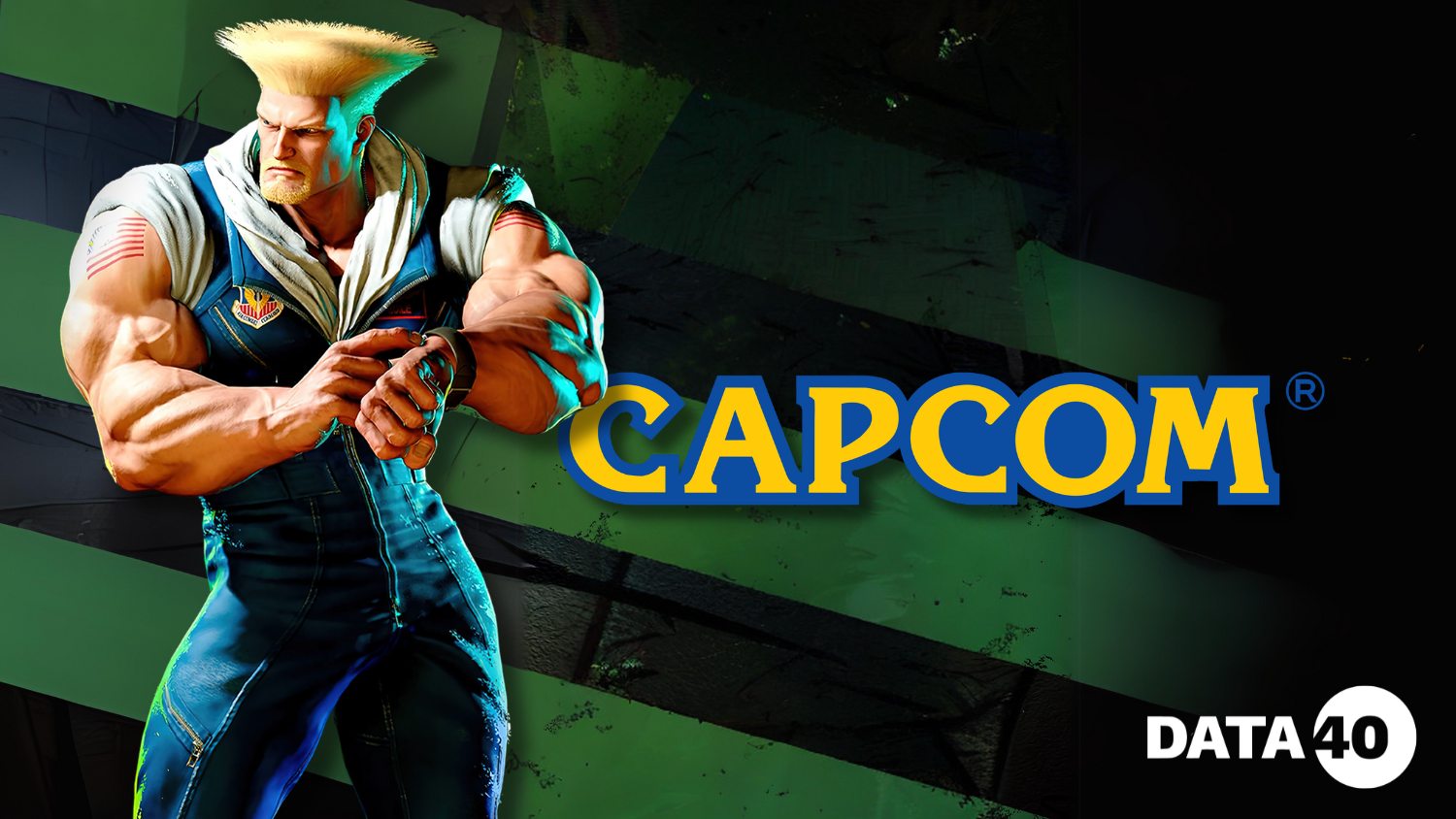
Capcom Co., Ltd., a leading developer and publisher in the video game industry, recently reported its Q1 FY2024 financial results. Known for iconic franchises like Resident Evil, Monster Hunter, and Street Fighter, Capcom’s performance this quarter offers insights into the company’s strategic direction, financial health, and market positioning. This article will analyze the key aspects of Capcom’s Q1 FY2024 financial performance, recent developments, and strategic initiatives.

Financial Performance Overview
For Q1 FY2024, Capcom reported net sales of ¥34.5 billion, representing a slight increase compared to the same period in the previous fiscal year. Operating income stood at ¥15.1 billion, while ordinary income reached ¥15.4 billion, showing a stable but modest growth trajectory. Net income attributable to owners of the parent was ¥11.5 billion, underscoring the company’s ability to maintain profitability despite industry challenges.
Key Drivers of Performance
- Strong Back Catalogue Sales: One of the primary drivers of Capcom’s revenue this quarter was the continued strong performance of its back catalogue titles. Games like “Resident Evil Village” and “Monster Hunter Rise” continued to generate significant sales, supported by ongoing digital promotions and discounts. This reliance on older titles highlights the strength of Capcom’s IPs and their enduring appeal to both new and returning players.
- Digital Shift: Capcom’s digital content sales, including full-game downloads and add-ons, have been a significant contributor to overall revenue. The company’s strategic focus on digital distribution allows it to capture higher margins and reach a broader global audience. Digital sales accounted for a substantial portion of total revenue, reflecting a successful shift in Capcom’s business model.
- New Releases and Updates: Although the quarter did not see any major new releases, Capcom continued to support its existing titles with updates and downloadable content (DLC). The release of new content for games like “Street Fighter 6” and “Monster Hunter Stories 2” helped maintain player engagement and drive recurring revenue streams.
Strategic Initiatives
Capcom Co., Ltd. has embraced a comprehensive strategy that weaves together innovation, market expansion, digital transformation, competitive gaming, and corporate responsibility. At the core of Capcom’s strategy is a relentless pursuit of innovation. The company is deeply invested in both expanding its existing franchises and creating new intellectual properties. This dual approach allows Capcom to cater to loyal fans of iconic series like Resident Evil and Monster Hunter, while also attracting new audiences through fresh and original game offerings. The balance between developing new titles and revitalizing beloved classics ensures that Capcom remains relevant in an industry where consumer preferences can shift rapidly.
Capcom’s global market expansion is another key aspect of its strategy. Recognizing the diversity of gaming cultures around the world, Capcom is tailoring its products to fit the unique preferences of regions such as North America, Europe, and Asia. Through localization efforts and region-specific marketing campaigns, Capcom is not just selling games but also building strong connections with players in different parts of the world. This global approach has allowed Capcom to extend its reach and tap into new revenue streams, reinforcing its position as a leading global player in the gaming industry.
The digital revolution has profoundly shaped Capcom’s business model. The company has shifted its focus from traditional physical sales to digital distribution, a move that has not only enhanced profit margins but also provided greater accessibility for players globally. Capcom’s digital strategy extends beyond mere game downloads; it includes a robust approach to downloadable content (DLC) and live-service models. By continuously offering new content and updates, Capcom keeps its player base engaged and drives recurring revenue, which is essential in the competitive gaming market.
In addition to its digital focus, Capcom is making significant strides in the competitive gaming and e-sports arenas. The rise of e-sports has opened new avenues for Capcom, particularly with its flagship fighting game, “Street Fighter.” The company has expanded the Capcom Pro Tour, increasing both the number of events and the size of prize pools. By fostering a vibrant and competitive community, Capcom is not only enhancing the longevity of its games but also solidifying its brand within the global e-sports ecosystem. This commitment to competitive gaming reflects Capcom’s understanding of the growing importance of e-sports in the broader entertainment landscape.
Moreover, Capcom’s commitment to corporate responsibility and sustainability is evident in its recent initiatives. The company is actively working to reduce its environmental impact by implementing eco-friendly practices across its operations. Additionally, Capcom is fostering a culture of diversity and inclusion within its workforce, recognizing that a diverse team can drive innovation and creativity. These efforts are complemented by Capcom’s engagement in philanthropic activities, which not only contribute to societal well-being but also enhance the company’s corporate image. In an era where consumers increasingly value ethical business practices, Capcom’s dedication to sustainability and corporate responsibility positions it as a forward-thinking and socially responsible organization.
Through this multifaceted strategy, Capcom is not only navigating the challenges of the gaming industry but also positioning itself for sustained growth and success. By focusing on innovation, global expansion, digital transformation, competitive gaming, and sustainability, Capcom is ensuring that it remains at the forefront of the gaming world, ready to meet the demands of a rapidly evolving market.
Recent News and Developments

- Release of “Street Fighter 6” (June 2024): One of the most anticipated events in recent months was the successful launch of “Street Fighter 6.” The game has been well-received by both critics and players, praised for its deep mechanics, diverse roster, and modernized gameplay. This release is expected to significantly contribute to Capcom’s revenue in the upcoming quarters.
- Resident Evil 4 Remake Success (March 2024): Capcom’s remake of “Resident Evil 4” was another significant success story. Released earlier in 2024, the game has been lauded for its faithful yet refreshed take on the classic, driving strong sales numbers and further cementing the Resident Evil franchise as a cornerstone of Capcom’s portfolio.
- Tokyo Game Show 2024 Participation (September 2024): Capcom announced its participation in the Tokyo Game Show 2024, where it is expected to showcase upcoming titles and provide updates on ongoing projects. This event is crucial for building hype and engaging with the gaming community, particularly in its home market of Japan.
- Capcom Pro Tour 2024 Expansion (August 2024): Capcom expanded its Pro Tour for “Street Fighter 6,” increasing the number of events and prize pools. This move aims to strengthen its presence in the competitive gaming scene and attract more players to its flagship fighting game.
- Partnership with Netflix (July 2024): Capcom entered into a partnership with Netflix to produce a series based on the “Devil May Cry” franchise. This collaboration marks a strategic move to expand Capcom’s IP into new media, potentially bringing in new audiences and revenue streams.
- Acquisition of a Minority Stake in a Mobile Game Developer (August 2024): Capcom acquired a minority stake in a mobile game developer, signaling its intent to increase its presence in the mobile gaming market. This aligns with the broader industry trend of expanding into mobile platforms, where there is significant growth potential.
Conclusion
Capcom Co., Ltd.’s Q1FY24 results reflect a company that is well-positioned within the global gaming industry. By capitalizing on its strong IP portfolio, embracing digital transformation, and strategically expanding its market presence, Capcom continues to demonstrate resilience and adaptability. Recent developments, such as the successful launch of “Street Fighter 6” and strategic partnerships, highlight Capcom’s proactive approach to staying relevant and competitive in the ever-evolving gaming landscape.
As the company moves forward, its focus on e-sports, new game development, and sustainability will be key areas to watch for investors and industry observers alike. This strategic outlook, coupled with stable financial performance, suggests that Capcom is on a steady path to achieving its long-term goals, ensuring its position as a leader in the video game industry.








